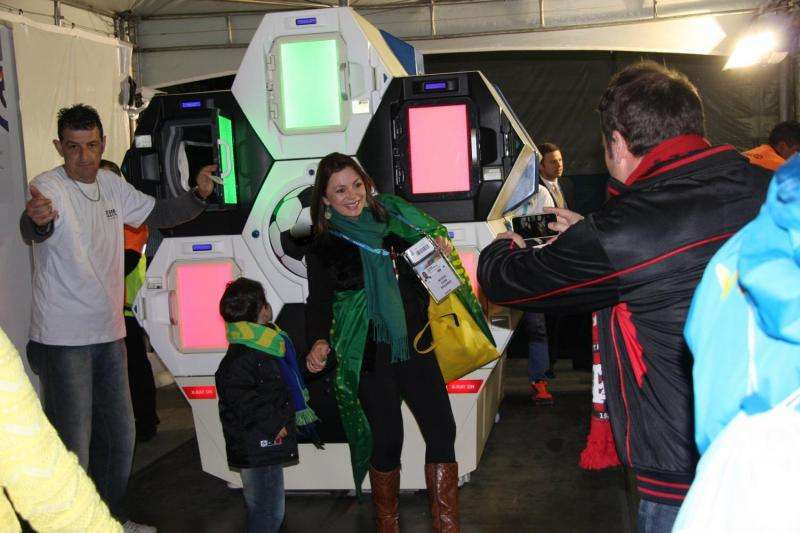The Paris terrorist attacks delivered another jolting reminder to people across the globe that such attacks can and do occur in public venues. One company that is looking to improve how bags are screened at point of entry to sports, parks, airport, and entertainment venues is Silicon Valley-based Qylur Intelligent Systems.
The question that they ask and address is this: Must the customer bag-screening experience suffer out of security needs or can the two co-exist?
The company has developed an automated, self-service bag security screening system. With their approach, people submit their bags for screening without assistance from a guard. It is an autonomous and one-stop solution called Qylatron.
The system makes use of adaptive learning and analytics with Qylur's "sense-think-act-learn" operations. The company has a suite of intelligent services.
Technologies at play involve predictive and preventative diagnostics, support and maintenance, venue-specific software updates based on intelligent machine learning.
Company founder and CEO, Dr. Lisa Dolev, said that "you cannot have your head in the ground" and terrorists bully us and try to change the fundamental way we do things. However, she added, security should be carried out in a way that is in line with "what you are all about. Otherwise, they have won."
In a promotional video, guests at Levi's Stadium in San Francisco delivered feedback: The general reaction was that the bag screening system was quick, easy, and they liked it.
The bag-screening hardware design is that of a large, portal-like system arranged in a shape similar to a beehive, said SecurityInfoWatch, of five hexagonal cells.
Dolev said the friendly looking boxes with their green and red doors looked simple but behind those doors is a massive amount of technology.
All those various technologies one thinks of in bag-screen security checks in their separate boxes such as xrays and chemical sensors have been fused into one integrated system.
Alex Davies in Wired delivered a view on how this honeycomb like machine of five pods works. Hold your ticket aloft and a ticket scanner assigns you to one of the five pods. "Pop in your bag, close the door, and walk to the other side. By the time you get there, the machine will have scanned your stuff for any number of things, as determined by the security team."
If something is discovered, there is someone alerted to take control of a bag and perform a manual search if necessary. SecurityInfoWatch said a screener located remotely in the control center or command post of the stadium would have access to the images in real time and can basically stop bags for anything seen.
The global network of Qylatrons is constantly updated through an intelligent threat learning engine.
The system was recently installed at Levi's Stadium in California, currently only being used for the stadium's daily tour program and select events.
What's next: Davies said it possibly could be used for air travel. He said the TSA was interested. The Transportation Security Laboratory, he said, announced it will test and evaluate Qylur's system over the next 18 months.
Qylur takes its name from the Condylura Cristata, or the star-nosed mole. This functionally blind animal uses its fleshy snout, embedded with 25,000 sensory receptors that work in unison to make quick integrated decisions, to detect and hunt prey.
More information: www.qylur.com/public/products
© 2015 Tech Xplore



















